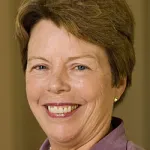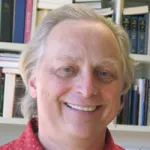
Stanford Report - December 18th, 2009
Eight Stanford scientists have been named fellows of the American Association for the Advancement of Science (AAAS), an honor bestowed upon members of the association by their peers.
The Stanford scholars join 531 other newly elected fellows of the world's largest general scientific organization.
The fellows elected to the American Association for the Advancement of Science from Stanford were chosen for contributions to fields ranging from pediatrics to particle physics, and from immunology to astrophysics to inequality between the genders. Microbiology and wireless communications, too.
Fellows are chosen on the basis of their efforts toward advancing science applications that are scientifically or socially distinguished. The new fellows will be honored Feb. 20 during the AAAS Annual Meeting in San Diego.
Arogyaswami Joseph Paulraj, professor (research) of electrical engineering was elected for his outstanding contributions to the theory and practice of multiple input multiple output (MIMO) wireless communication.
Ann Arvin, the Lucile Salter Packard Professor of Pediatrics and professor of microbiology and immunology, was elected for her distinguished contributions in molecular virology and infectious diseases toward understanding the molecular virology of varicella-zoster virus, human herpes virus pathogenesis and vaccine immunity. Arvin is also Vice Provost and Dean of Research at Stanford.
Karla Kirkegaard, professor and chair of microbiology and immunology, was elected for her distinguished contributions to the understanding of RNA viruses, polio, hepatitis C and dengue viruses, recently focusing on how they develop drug resistance and how to reduce that frequency.
Peter Sarnow, professor of microbiology and immunology, was elected for his distinguished contributions to understanding the mechanisms of cellular and viral translation, and the regulation of gene expression in mammalian cells by microRNAs, with particular focus on polio virus and on hepatitis C virus.
David Hand Coward, physicist emeritus at SLAC National Accelerator Laboratory at Stanford University, was elected for his distinguished contributions to experiments that discovered the quark structure of the proton and neutron, and measured direct CP Violation in neutral K-meson decays.
Michael E. Peskin, professor of particle physics and astrophysics at SLAC National Accelerator Laboratory at Stanford University, was elected for his distinguished contributions to high-energy physics affecting both theory and experiment, including innovations for the model-independent interpretation of precision measurements.
Cecilia Ridgeway, Lucie Stern Professor in the Social Sciences, was elected for her distinguished contributions to the study of gender in society, particularly for research on status inequality, discrimination, and the place of gender in social organizations.
JoAnne L. Hewett, professor of particle physics and astrophysics at SLAC National Accelerator Laboratory at Stanford University, was elected for her seminal contributions to the phenomenology of B physics, Tevatron and LHC physics, in particular the exploration of "Beyond the Standard Model" Physics.



